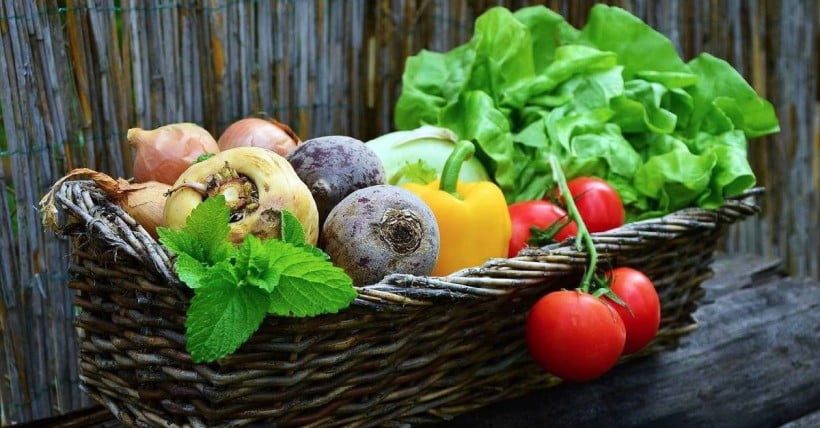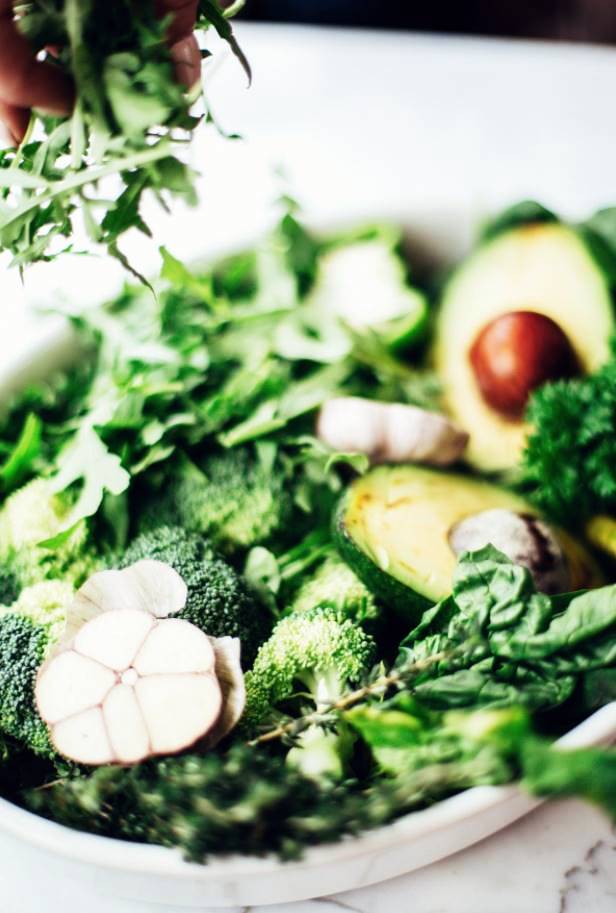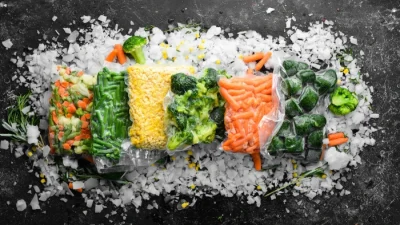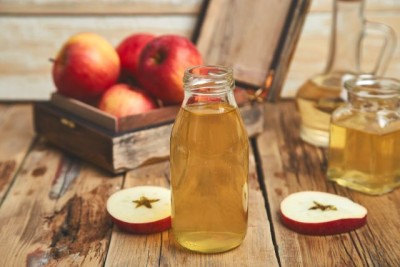Top 10 Alkaline Foods That Are An Essential Part Of A Healthy Diet
Warning: Undefined variable $post in /home/dietofli/public_html/wp-content/plugins/code-snippets/php/snippet-ops.php(584) : eval()'d code on line 3
Warning: Attempt to read property "ID" on null in /home/dietofli/public_html/wp-content/plugins/code-snippets/php/snippet-ops.php(584) : eval()'d code on line 3
The estimated reading time is 9 minutes
Warning: Undefined variable $post in /home/dietofli/public_html/wp-content/plugins/oxygen/component-framework/components/classes/code-block.class.php(115) : eval()'d code on line 3
Warning: Attempt to read property "ID" on null in /home/dietofli/public_html/wp-content/plugins/oxygen/component-framework/components/classes/code-block.class.php(115) : eval()'d code on line 3

Our bodies are built to be in a continuous state of alkalinity. The ideal pH (a number which indicates how strongly basic or acidic something is) of a human body is around 7.35 to 7.45. To keep our bodies healthy, it’s essential to maintain this pH range. Sadly, living in a modern and fast-paced society, most of us tend to consume foods and drinks that decrease the pH level of our blood, which is the answer to the main question:
Why are we so acidic?
Our diet has a direct effect on our pH levels since some foods alkalize our bodies and other foods make them acidic. For most of us, our daily diet consists of meat, processed foods, white flour, dairy products, sugar and coffee. A lot of these go-to foods are very acidic and they cause the body to “struggle” to maintain its ideal pH level. So, how does the body do this? The answer – it makes use of the calcium from the teeth and bones. It’s also worth mentioning that when our bodies are acidic, this is decreasing the amount of oxygen that gets to our cells.
When the body is in a continuous acidic state, it easily becomes more prone to a number of health conditions, such as allergies, a stroke, auto-immune diseases, heart disease, skin problems, and even cancer. The solution to this lies in alkaline diet – a type of diet that helps maintain the pH levels of our blood and body fluids.
What is actually the alkaline diet?
To better understand the alkaline diet, also known as alkaline ash diet or acid- alkaline diet, let’s try to compare your metabolism to fire. When a thing burns, it leaves ash. In the same way, after the body digests the food, it creates “ash” known as body waste.
There are three types of body waste: neutral, acidic, and alkaline. Supporters of the alkaline diet assert that body waste influence directly the acidity of the body.
This means that consuming foods which produce alkaline ash after being digested causes your blood to become more alkaline. Whereas eating foods which produce acidic ash causes the blood to become more acidic. Acidic ash is believed to make the body more susceptible to illness, while alkaline ash is thought to protect you from it and improve your health.
Before we move on to the top 10 alkaline foods list, let’s see which foods are believed to be neutral, acidic, or alkaline:
- Neutral: sugars, fresh, unsalted butter, starches, whey, and natural fats
- Acidic: poultry, meat, fish, grains, bread, dairy products, alcohol, and caffeinated drinks
- Alkaline: vegetables, fruits, chestnuts, almonds, and legumes.
Top 10 Alkaline Foods
1. Avocado
Not only is avocado super delicious, it also abounds in essential nutrients, antioxidants, fiber, potassium, and magnesium. Many people prefer to eat this fruit because it’s known for its low level of bad cholesterol and high level of unsaturated fatty acids, thereby having a beneficial effect on cardiovascular health.
So, whether you prefer to include it in smoothies for breakfast or in salad for lunch, or to make super delicious guacamole, make sure you make avocados a part of your daily diet.
2. Broccoli
No wonder broccoli is on this list, since it is packed with one of the most important alkali-forming minerals, i.e. potassium (100 g of broccoli contains 316 mg of potassium). It is also rich in minerals, such as magnesium, calcium, manganese, phosphorus, and iron, as well as various vitamins, such as B6, A, K, C, and E.
Broccoli also contains phytochemicals which help alkalize our bodies and boost estrogen metabolism. Thanks to the anthocyanin, polyphenols, and flavonoids which are present in it, it’s believed to have vital antioxidant properties.
In addition to alkalizing our bodies, this delicious vegetable enhances digestion and immunity, increases metabolism, improves skin health, and helps fight malignant tumors.
The good thing about broccoli is that you can consume it baked, fried, steamed, or even raw. Whatever way you choose to prepare it, it’s always yummy. Not only will you enjoy eating it, but you’ll also see what great effects will have on your body.
3. Spinach
Being rich in chlorophyll, this leafy vegetable is pretty alkaline. It also abounds with vitamins C, A, B2, E, and K. Different minerals are present in it, such as potassium, folate, magnesium, iron, manganese, and calcium. In addition to this, it is packed with flavonoids, carotenoids, and fiber.
For those of you who want to have a healthy-looking, smooth skin or look like you’re in your 30s forever, make sure you regularly eat spinach. In addition to these two benefits, consuming spinach can also help better cardiovascular health, build muscle strength, lower your risk of malignant tumors, and fight anemia.
4. Bell peppers
Whether it’s yellow, red, or green, this vegetable is greatly alkaline. Not only do bell peppers increase the level of alkali in your body, they can also transform acidic-forming foods. Besides containing manganese, iron, copper, folate, potassium, and flavonoids, they’re loaded with vitamins B6, K, C, E, and A. So, whether you prefer to consume bell peppers grilled, baked, roasted, stuffed, or just raw, don’t hesitate to include them in your healthy eating plan.
5. Cucumber
Yes, cucumber is high in water and it’s a low-calorie food, but it’s rich in nutrients and it’s very alkaline. It abounds with vitamins K, C, and B. This fruit (yes, it’s not a vegetable as you might have thought so far), shows vital anti-inflammatory properties.
Consuming cucumbers on a daily basis can enrich your body with potassium, amino acids, magnesium, carbohydrates, manganese, copper, phosphorus, and silica. And if you thought that these are the only benefits of eating cucumbers, let me tell you that you’re wrong. Making this fruit a part of your diet can enhance your metabolism, prevent heart diseases, control the levels of blood sugar, and keep your body always hydrated.
6. Tofu
If you’re a vegetarian, this alkaline food is a great substitute for meat. It’s made of soya milk which is extracted from soybeans and curdled. Besides being low in fat, tofu has a lot of essential vitamins and nutrients which can help you maintain your health, fight the blood vessels and heart inflammation, and keep diseases at bay.
7. Wheatgrass
Although many people aren’t familiar with this food, wheatgrass is a rich source of nutrients and alkalinity. It also has a good amount of C, E, A, D, and B-complex vitamins, iron, amino acids, copper, manganese, chlorophyll, and zinc. Thanks to all of this, wheatgrass is beneficial to maintaining cardiovascular health, increasing energy levels, improving the immune system, preventing cancer, keeping blood sugar levels stable, and the list goes on.
And if you’re the type of person who likes to drink smoothies in the morning, why don’t you make a little change and try to make a nice juice using some vegetables or fruit mixed with wheatgrass? You’ll see that this is one of the most amazing alkaline foods for breakfast.
8. Garlic
How beneficial garlic is to improving our overall health is something that everyone knows. This vegetable abounds with nutrients and minerals, such as magnesium, potassium, selenium, manganese, copper, and calcium. It’s also a rich source of C, B1, and B6 vitamins.
Garlic helps our bodies remove toxins from our digestive system, and the allicin present in garlic helps lower the levels of cholesterol and high blood pressure.
And here’s one tip: To make sure that you reap all of its benefits, consume it either chopped or crushed. Eat 2 fresh cloves of garlic on a daily basis and you won’t have to worry whether the pH of your body is at an ideal level.
9. Carrots
Those of you who are trying to lose weight by desperately searching for foods that are low in carbohydrates, cholesterol, and calories, search no more. Carrots fit the description. They’re also a great source of potassium and vitamin A. And in addition to this, they abound with fiber, thereby making them quite beneficial to digestion.
10. Almond milk
For those of you who love drinking milk but are intolerant to lactose, here’s some good news: Almond milk does not contain lactose and it’s low-fat. Moreover, it abounds with calcium, which makes it beneficial to maintaining good muscles, cardiovascular health, and nerves and preventing osteoporosis and other bone diseases.
Alkaline Foods vs Acidic Foods
Our diet has a direct influence on our health. Not only does it have effect on our liver and kidneys, it also affects our brain, nerves, mood, and biochemistry. As I already said, living in a modern, fast-paced society and juggling all our daily responsibilities while making sure we complete all tasks on time is the main reason a large majority of people tend to follow a diet which mostly consists of acidic foods.
This type of diet is low in healthy proteins and fats, vegetables, fruits, and whole grains, and it’s mainly based on cereals, white flour, sugar, red meat, coffee, and processed food. Such diet raises the levels of bad cholesterol as well as inflammation. Additionally, as acidic foods lack the nutrients that our bodies need to function properly, they make the body more susceptible to certain health conditions, such as diabetes, hypertension, cardiovascular disease, osteoporosis, obesity, and cancer.
Alkaline foods, on the other hand, constitute a small part of the modern diet. Vegetables and fruits are eaten in way smaller amounts compared to, let’s say, fast food, which is acid-forming.
To maintain good health, not only do we need to avoid consuming processed foods, we also need to create balance between meals with 25% acid-forming to 75% alkaline-forming.
Eating alkaline-producing foods can balance the acidic nutrients that constitute a large part of modern diet, thereby keeping the pH of our body’s fluids at an optimum level.
Not only do alkaline foods help balance our levels of pH, they also help reduce our risk of long-term diseases, which I already mentioned above.
So, in order to maintain good overall health, make sure you make alkaline foods an essential part of your daily diet. And in what follows, we’ve presented several other alkaline foods so that you can have a wide range to choose from.
A List Of More Alkaline Foods And Beverages
- Celery
- Lemons
- Kale
- Apple cider vinegar
- Ripe bananas
- Legumes
- Beets
- Beans
- Almonds
- Figs
- Cayenne peppers
- Pumpkin seeds
- Watermelons















